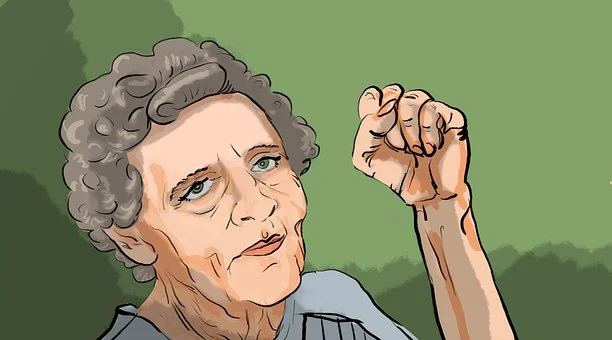I was first drummer in my junior high school band. Every year we participated in competitions with other schools in the area. Impartial judges graded each band with some variation of “1” for the highest grade and “5” for the lowest. They were supplemented by individual comments from the judges.
Mr. Hollander Thinks He’s Being Nice
On our bus ride home from one competition, our music teacher, Mr. Hollander, read aloud the judges’ comments. All were surprisingly positive. But he didn’t say anything about the drum section, which consisted that day of me.
“What did they say about the drums?” I asked. Mr. Hollander didn’t respond. I asked again. He looked away as if he didn’t hear me and began talking to another student.
I asked a third time. He finally answered. “The drummer needs to slow down and not get ahead of the other instruments.” Then he turned away.
What happened? I believe he was trying to protect my feelings from being hurt by negative comments. Or maybe he was just ashamed because he had failed as a teacher.
Imagine how helpful he might have been if he had read their comments to me — privately, to avoid embarrassing me in front of the others – and then tutored me in the following weeks.
No Time to Be Nice
As a serious author with a completed manuscript, you want serious feedback as well. You’ve come this far. A good editor is worth the investment.
But editing can be a costly addition to your budget. Editors generally charge by the hour or the word. You can keep billing hours to a minimum by giving your editor your cleanest possible manuscript.
So, before you submit it, for final editing, put out the word that you’re looking for peer reviewing help. Share it with as many reviewers as you can. Invite peers, social media connections, clients, friends, and relatives to help you tear apart your book and put it back together.
Rebel Against Your Childhood
Demand that they rebel against childhood. Like you, they probably learned, “If you can’t say something nice, don’t say anything at all”? They probably also learned, “Honesty is the best policy.”
By the time you send them your manuscript, these two often-contradictory pearls of profundity have merged into “Honesty is the best policy unless you can’t say something nice.”
Here’s the 1-2-3 of what nice looks like in the publishing world:
- Your peer reviewing friends want to be nice and not hurt your feelings so they say they like your book even though major portions lack specifics and raise questions that it doesn’t answer.
- You think, “Oh, they like it. It must be good,” and send it to a publisher to consider for publication.
- The publisher, who is paid to be honest, not nice, and who doesn’t know you anyhow, says, “This stinks,” and rejects it outright.
So how nice were your friends really being?
This is no time for them to be nice.
Sharing Your Manuscript
Send your manuscript as a Word file email attachment with Track Changes on so any revisions they make will be visible to you.
In your cover letter, include a bullet list of specific areas of concern. For example:
- How interesting was it?
- What questions did it raise but not answer?
- How convincing were the arguments I put forth?
- What passages were unclear or incomplete?
- What grabbed you?
- How well did the sentences and paragraphs flow together?
- What factual errors did you find?
- What grammatical errors did you find?
- Any other comments and suggestions?
Tell them to comment freely. Give them a deadline to get their comments to you.
Peer Reviewing with Goodwill and Commitment
Demand honesty with a base of goodwill and a commitment to find positive ways to critique, and they’ll give it to you. “This stinks” is not acceptable. “I’m not clear what you mean by this” or “You said it was a nice day but I can’t picture it; what specific details can you give me?” is.
Consider all comments with love— whether you implement them or not — because some of them are going to hurt. But they will make your book better.
I thank Guy Kawasaki, whose APE: How to Publish a Book introduced me to the idea of finding reviewers on social media. My book, You’ve Got the Time: How to Write and Publish That Book in You, is a testament to that strategy.
* * *
This piece was adapted from Ken Wachsberger’s You’ve Got the Time: How to Write and Publish That Book in You. Ken’s other books may be found here and here. For book coaching and editing help, or to invite Ken to speak at your meeting, email Ken at [email protected].
Schedule your complimentary 30-minute coaching and editing session now.








